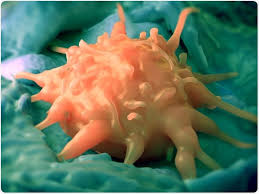Eosinophilia is known as the increase of eosinophils within your blood [equal to or greater than 500 eosinophils per microliter]. Eosinophils are one of the many white blood cells, which support the immune system.
They are also part of the human body’s defense system against allergens. They protect the body from parasites and fungal infections. There are some conditions that can lead to high eosinophil counts.
The Signs or Symptoms of Eosinophilia
When you have eosinophilia, the eosinophilia symptoms or signs will depend on the increased eosinophil count. If the count is mildly increased, you will not experience any symptoms or signs. The most common signs of this condition are:
- Chronic Eosinophilia Cough
- Rash
- Asthma
- Itching
- Diarrhea [if you have parasite infection]
- Runny Nose [Associated with allergies]
When you experience any of these eosinophilia symptoms, be sure to tell the doctor. Doing so can help you get effective or quick treatment.
Is Eosinophilia a Severe Condition?
Well, it depends on the eosinophils count. Eosinophilia can be severe, moderate, or mild. Increased levels of eosinophils can lead to a mild condition, such as allergy or drug reaction and severe ones can cause some blood disorders.
On certain occasions, high levels of eosinophils concentrated at a particular area of the human body may lead to inflammation, which will affect overall health.
What Causes Eosinophilia?
Eosinophilia occurs due to many conditions, such as reactions to certain medications, asthma, and seasonal allergies. Infections, mainly caused by parasites, can also cause eosinophilia.
Issues with immune regulation, such as autoimmune diseases like sarcoidosis, vasculitis, autoimmune myocarditis, and inflammatory bowel disease can lead to eosinophilia.
Blood cancers, which produce these white blood cells inappropriately, can also lead to eosinophilia. Lastly, genetic changes, which are hereditary [passed down to you by biological parents] may cause eosinophilia.
What Will Happen When the Eosinophil Count is High?
On certain occasions, eosinophils can cause inflammation in several areas of the human body. If this happens, it’s known as Eosinophilic Disorder or HES [Hyper-Eosinophilia Syndrome]. There are some eosinophilic conditions, which are named based on the various parts of the human body. Some of these eosinophilia disorders are:
- Eosinophilic Cystitis [Bladder Disorder]
- Eosinophilic Fasciitis [Fascia Disorder]
- Eosinophilic Pneumonia [A disorder that affects the lungs]
- (EGID) Eosinophilic Gastrointestinal Disorders [This includes the condition Eosinophilic Esophagitis that affects the Esophagus and disorders that affects the colon, small intestine, and stomach]
- (EGPA) Eosinophilic Granulomatosis with Polyangiitis [This is also known as the Churg-Strauss Syndrome that affects the sinuses, heart, lungs, and other organs]
- (HES) Hyper-Eosinophilic Syndrome [It’s a group of conditions connected to continuous high levels of eosinophilia. The condition affects the respiratory tract, heart, skin, and central nervous system].
How is Eosinophilia Diagnosed?
Increased levels of eosinophils are detected during the routine blood test known as CBC or Complete Blood Count with a differential count of white blood cells. Based on your situation, your doctor may conduct more tests to learn why the eosinophil levels are high.
The Treatment of Eosinophilia
To treat the eosinophilia symptoms, you need to opt for the most effective treatment for it. For instance, when you have Eosinophilic Esophagitis, your doctor will prescribe steroids or other medications.
When you have high levels of eosinophil due to chronic sinusitis or allergies, the healthcare expert will suggest allergy testing. It can reveal the cause of the allergic reaction, which triggered the condition.
On the other hand, if some medication is causing eosinophilia, the healthcare expert will recommend avoiding or stopping it. Be sure to speak with your healthcare provider about your symptoms properly.
How to Prevent Eosinophilia from Taking Place?
Allergies are viewed as the most common reason for a high eosinophil level. You can prevent this condition by controlling the triggers of the allergic reactions in your body.
At times, eosinophilia might be a sign of an underlying condition, which you might not know about.
It is advisable to consult a doctor for a proper assessment of the blood reports.
Last Note
Eosinophilia happens due to a high level of white blood cells or eosinophils, which supports your immune system. So, if you’re experiencing its symptoms/signs, you should speak with a doctor. They will conduct appropriate tests to learn what exactly triggered the condition and plan the treatment accordingly.
Read Also: What is the Life Expectancy of Someone with Triple X Syndrome?









































